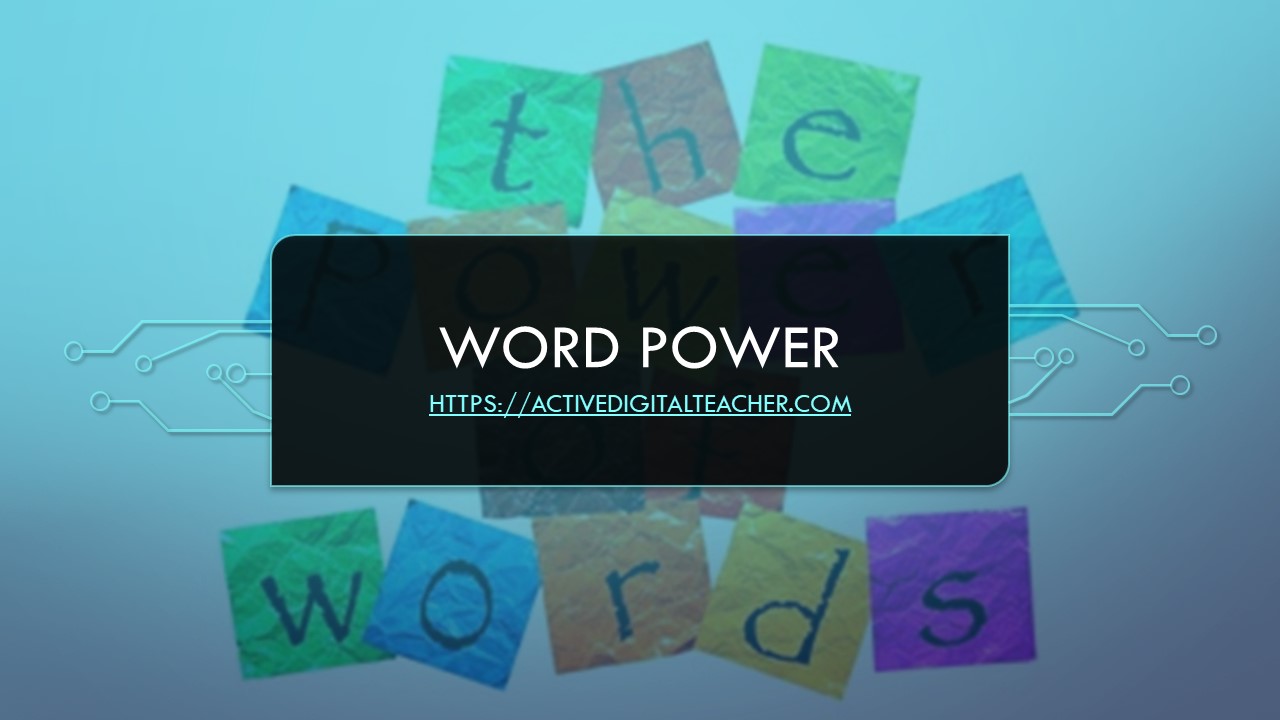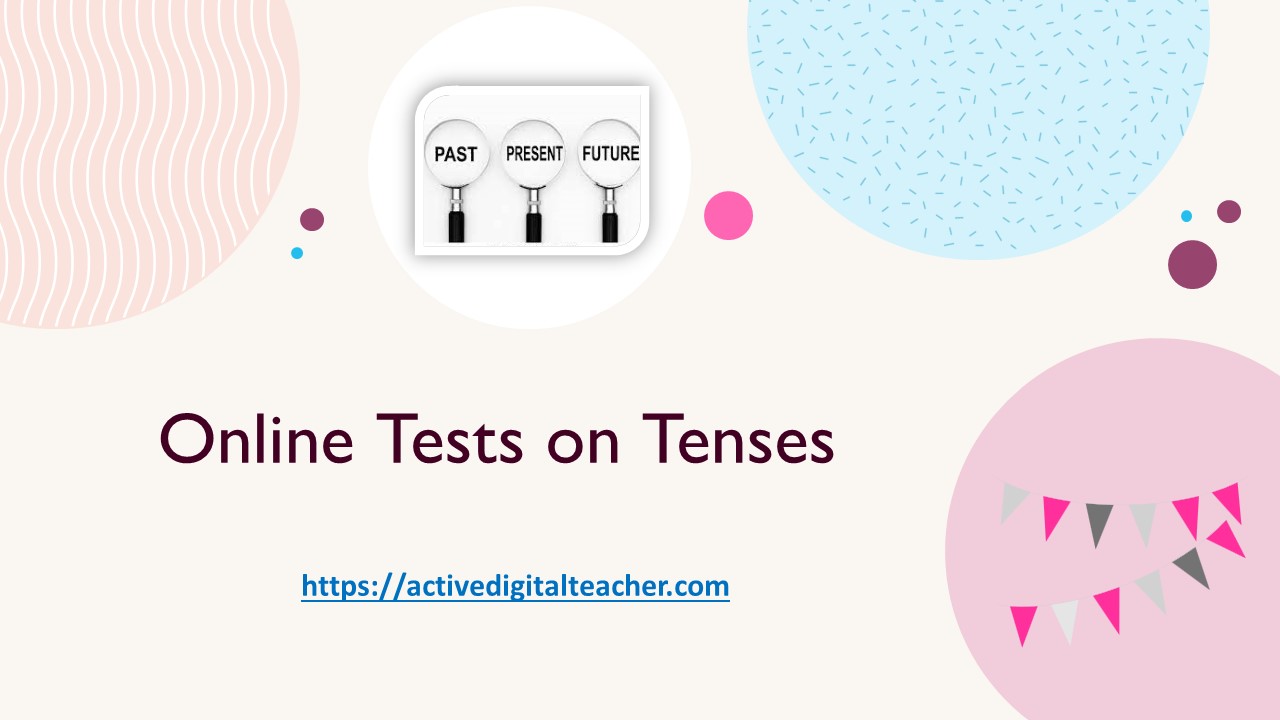Word Power- Know more about it
Word building is a valuable skill that allows individuals to enhance their vocabulary, improve language comprehension, and increase their communication effectiveness. The process involves understanding the components of words—such as roots, prefixes, and suffixes—which can be combined to form new words and convey more complex meanings.
Understanding the Building Blocks of Words
- Roots: A root is the base component of a word from which other words grow, usually through the addition of prefixes and suffixes. For example, the root “spect” means “to look” and can be found in words like “inspect” (to look into) and “spectator” (one who looks).
- Prefixes: A prefix is a letter or group of letters added to the beginning of a word to alter its meaning. For example, “un-” is a common prefix that negates the original meaning, as seen in words like “unhappy” (not happy).
- Suffixes: A suffix is a letter or group of letters added to the end of a word to change its meaning, typically altering its word class (from verb to noun, adjective to adverb, etc.). For instance, “-ment” is a suffix that turns verbs into nouns, as in “payment” (the act of paying).
Strategies for Word Building
- Morphological Analysis: Breaking down words into their constituent morphemes (the smallest grammatical units) to understand their meanings.
- Use of a Dictionary: Leveraging dictionaries can help learn the origin, meaning, and proper usage of new words.
- Reading Extensively: Being exposed to a wide range of texts helps to naturally encounter and understand new and complex words.
- Playing Word Games: Engaging with word puzzles and games like Scrabble or crosswords can also be a fun way to build your vocabulary.
Examples of Word Building
- Happiness: Built from the root “happy” with the addition of the suffix “-ness,” which turns the adjective into a noun, denoting the state of being happy.
- Unbelievable: This word combines the prefix “un-” (not) with the root “believe” and the suffix “-able” (able to be), thus meaning not able to be believed.
- Transformation: This word includes the prefix “trans-” (across), the root “form” (shape), and the suffix “-ation” (the process of), referring to the process of changing shape.
Through conscious practice of word building, literacy is enhanced, and individuals can express ideas and emotions with greater precision and clarity. Whether you’re a student, professional, or anyone looking to expand your linguistic capabilities, understanding the art and science of word construction is a powerful tool.
Word building is a valuable skill that allows individuals to enhance their vocabulary, improve language comprehension, and increase their communication effectiveness. The process involves understanding the components of words—such as roots, prefixes, and suffixes—which can be combined to form new words and convey more complex meanings.
Test No. 1 (Word Power)
Do solve the online test based on Choosing the corectly spelt word.
Click below-

#1. Choose the correctly spelt word showing the meaning of the given word: 1. Gain-
#2. clear
#3. Difficult
#4. Trust
#5. Permission
#6. Take
#7. Schedule
#8. Sophisticated
#9. Demolition
#10. 10. Carelessness
Results
Try Again to get Passed.
Better Luck Next time.
🤦♂️😭😭😡😡
See more
Choosing mis-spelt word is a fun. Test on such activity gives joy.
Choosing the Correctly Spelt Word Activity
Great spellers aren’t born; they are taught. Choosing the correctly spelt word is not just a test of memorization but also an insight into the patterns and structures of the English language. This activity is a fantastic way for both students and adults to sharpen their spelling skills and deepen their understanding of English orthography.
Below, you’ll find an engaging activity designed to challenge your ability to identify the correctly spelt words. Give it a try, and see how quickly you can spot the right spelling!
Activity Instructions:
- Read each group of words carefully.
- Identify the word that is spelt correctly.
- Write down or mentally note your answer.
- Check your answers at the end to see how well you did.
Word Groups:
- A. Accomodation B. Accommodation C. Acomodation D. Acummodation
- A. Seperate B. Seporate C. Separate D. Separeate
- A. Mischevous B. Mischievious C. Mischievous D. Mischivous
- A. Recieve B. Receive C. Reeceive D. Recive
- A. Calendar B. Calender C. Calandar D. Calandear
Check Your Answers:
- B. Accommodation
- C. Separate
- C. Mischievous
- B. Receive
- A. Calendar
This simple activity can be expanded upon by creating custom quizzes, incorporating word origins, or even delving into the reasons behind the common mistakes in spelling certain words.
Remember, practice is the key to improvement. So keep challenging yourself with these spelling activities and become a master of word power!
Homonyms are words that have the same spelling or pronunciation but different meanings or origins. Despite their similarity in sound or look, homonyms can create entirely different interpretations within sentences. Understanding homonyms is crucial for clear communication and can prevent confusion in both written and spoken English.
Examples of Homonyms:
- Bark:
- The outer covering of a tree. (noun)
- The sound a dog makes. (noun)
- Well:
- In good health; satisfactory or fine. (adjective)
- A deep hole or shaft dug or drilled to obtain water or oil. (noun)
- Bat:
- A piece of equipment used in cricket or baseball to hit the ball. (noun)
- A nocturnal flying mammal. (noun)
- Left:
- The past tense and past participle of leave.
- A direction opposite of right.
- Tear:
- To rip or damage something by pulling it apart. (verb)
- A drop of liquid from the eye. (noun)
Using homonyms appropriately can enhance writing, providing nuanced meanings and playing with words for poetic or humorous effect. To use them correctly, it is essential to have context, as this gives clues to which meaning is intended:
- Example Sentence: “The bark was rough against her skin as she leaned against the tree, her ears perking up at the sudden bark from her dog warning of a stranger’s approach.”
Here, even though the same word “bark” is used, we understand the first instance to refer to the tree’s outer layer, and the second as the sound made by the dog.
Tips for Mastering Homonyms:
- Contextual Clues: Pay attention to the surrounding text to determine the meaning.
- Pronunciation: Some homonyms have slight differences in pronunciation that can help differentiate their meaning.
- Practice with Sentences: Write sentences using homonyms to ensure you understand the differences in their meanings.
- Learning Pairs: Study homonyms in pairs or groups to remember their distinct meanings.
By familiarizing yourself with homonyms, you’ll be better equipped to understand their use and avoid potential misunderstandings in communication.
Test No. 2 (Find the silent letter from the word)
A letter is silent if it is not pronounced. In English you will find various silent letters. In the given test you need to find only one silent letter. So try to find it.
Do solve the test-

Test No. 3 (Choose the meaningful word)
Test on choosing the correct word to fill the blank space.
Do solve the test-

Test No. 4 (Choose the correct word)
Test on choosing the correct word to fill the blank space.
Do solve the test-









Wonderful!
[…] Word Power […]
[…] Word Power […]
[…] Word Power […]
[…] Word Power […]
[…] Word Power […]
Very useful.
[…] Word Power […]
[…] Word Power […]
[…] Word Power […]
[…] Word Power […]